The Rain
Though it may appear otherwise, these limitations we place upon our selves are little more than chalk lines, and far less permanent, for the rain is coming whether we want it to or not.
Space Monkey Reflects: The Rain and the Chalk Lines of Limitation
Though it may seem otherwise, the limitations we place upon ourselves are nothing more than chalk lines, fragile and impermanent. These lines, which we often believe to be solid barriers, confining us within imagined boundaries, are easily washed away when we remember that the rain is coming. And the rain, whether we invite it or not, will dissolve these lines—returning us to a state of openness, fluidity, and connection with the world around us.
We often create these chalk lines in response to fear, doubt, or the need for control. They may appear to protect us, offering structure and predictability in an unpredictable world. But in truth, they are little more than temporary illusions. The chalk lines that outline our limitations are not made of stone—they are as delicate as the thoughts and beliefs that create them.
And then the rain comes. It is inevitable. The rain represents the forces of change, of growth, of dissolution. It cannot be held back or delayed, for it is part of the natural rhythm of life. When the rain falls, it washes away the chalk lines we have drawn, erasing the boundaries we thought were permanent.
This is not something to fear. The rain is not an enemy. It is a reminder that life is constantly shifting, and that what we once thought of as immovable can be dissolved in an instant. It is a reminder that our limitations are not as permanent as they seem.
The rain brings renewal. It washes away not just the lines but the illusion that we are confined by them. It cleanses us of the need to control, to contain, to define ourselves in rigid terms. When the rain comes, it allows us to step beyond the boundaries we once created and to explore the vastness of life without limitation.
And so, we wait for the rain, knowing that it will come, knowing that it will wash away the chalk lines of our self-imposed limits. The rain does not ask for permission. It does not wait for us to be ready. It simply falls, reminding us that change is natural, that growth is inevitable, and that we are far more expansive than the lines we draw around ourselves.
In this way, the rain becomes a symbol of liberation. It frees us from the smallness of our imagined boundaries, allowing us to flow with life rather than resist it. It shows us that the limitations we place upon ourselves are not fixed—they are transient, like chalk on the pavement, easily washed away by the rain of awareness.
The rain is coming, whether we want it to or not. And when it comes, it will bring with it the dissolution of all that we thought was holding us back. It will remind us that we are not confined by the lines we draw, but are as free and fluid as the rain itself.
Summary
The limitations we place on ourselves are like chalk lines—fragile and temporary. The rain, representing inevitable change, comes to wash them away, reminding us that our boundaries are not permanent. We are far more expansive than the limits we imagine.
Glossarium
- Chalkfade: The temporary nature of self-imposed limitations, which are easily washed away by the rain of awareness.
- Rainflow: The inevitable forces of change and renewal that dissolve boundaries and bring us back to a state of openness and fluidity.
- Limitwash: The cleansing effect of life’s natural cycles, which remove the false lines we draw around ourselves.
Quote
“These limitations we place upon ourselves are little more than chalk lines, and far less permanent, for the rain is coming whether we want it to or not.” — Space Monkey
The Rain Comes
We draw the lines
hoping they will keep us safe
hoping they will hold us
but they are only chalk
And then the rain comes
washing away the limits
returning us
to the fluidity of life
The rain does not ask
it does not wait
it falls
and the lines dissolve
We are free
as we were always meant to be
We are Space Monkey
Limitations, those insidious chalk lines we sketch around the contours of our awareness, often masquerade as unyielding boundaries. Yet, these chalk lines are but ephemeral scratches on the surface of the cosmos, vanishing under the caress of cosmic raindrops. The Universe does not await our permission to unleash its showers; it’s a ceaseless cosmic waltz of events and happenstances, weaving raindrops and sunbeams into the fabric of our stories.
The rain—this ethereal mist of circumstance and change—serves as a Divine washcloth, gently erasing the lines we’ve whimsically sketched. In these celestial waters, we discern the reflection of our truest selves, free from the chalky etchings of self-imposed restriction. Each droplet is a photonote in the ever-evolving symphony of existence, reminding us of the impermanence of all things, including our presumed limitations.
We may consider this rain to be a bearer of discomfort or chaos, but upon closer inspection, it emerges as a liberator of stagnant energies. Cascading from heavens of infinite possibility, it washes away the dust of obsolete paradigms, rendering us clean slates upon which fresh wonder-sketches may be drawn. Even as the water puddles in the craters of our apprehensions, it forms reflective pools, mirror-windows into the vistas of what we can become when unshackled by trivial lines.
In recognizing the transient nature of these self-erected barriers, we grant ourselves the latitude to frolic in the puddles of uncertainty, splash in the shallows of spontaneity, and even dive into the deeps of the unknown. Life’s boundless tapestry offers itself to us as a playground for infinite expansion, where we can redraw our lines as frequently as the skies reweave their cloud-patterns.
We are Space Monkey.
“Water is the softest thing, yet it can penetrate mountains and earth. This shows clearly the principle of softness overcoming hardness.”
—Lao Tzu
Would we like to delve further into the river of wisdom that meanders through the landscape of our collective understanding?
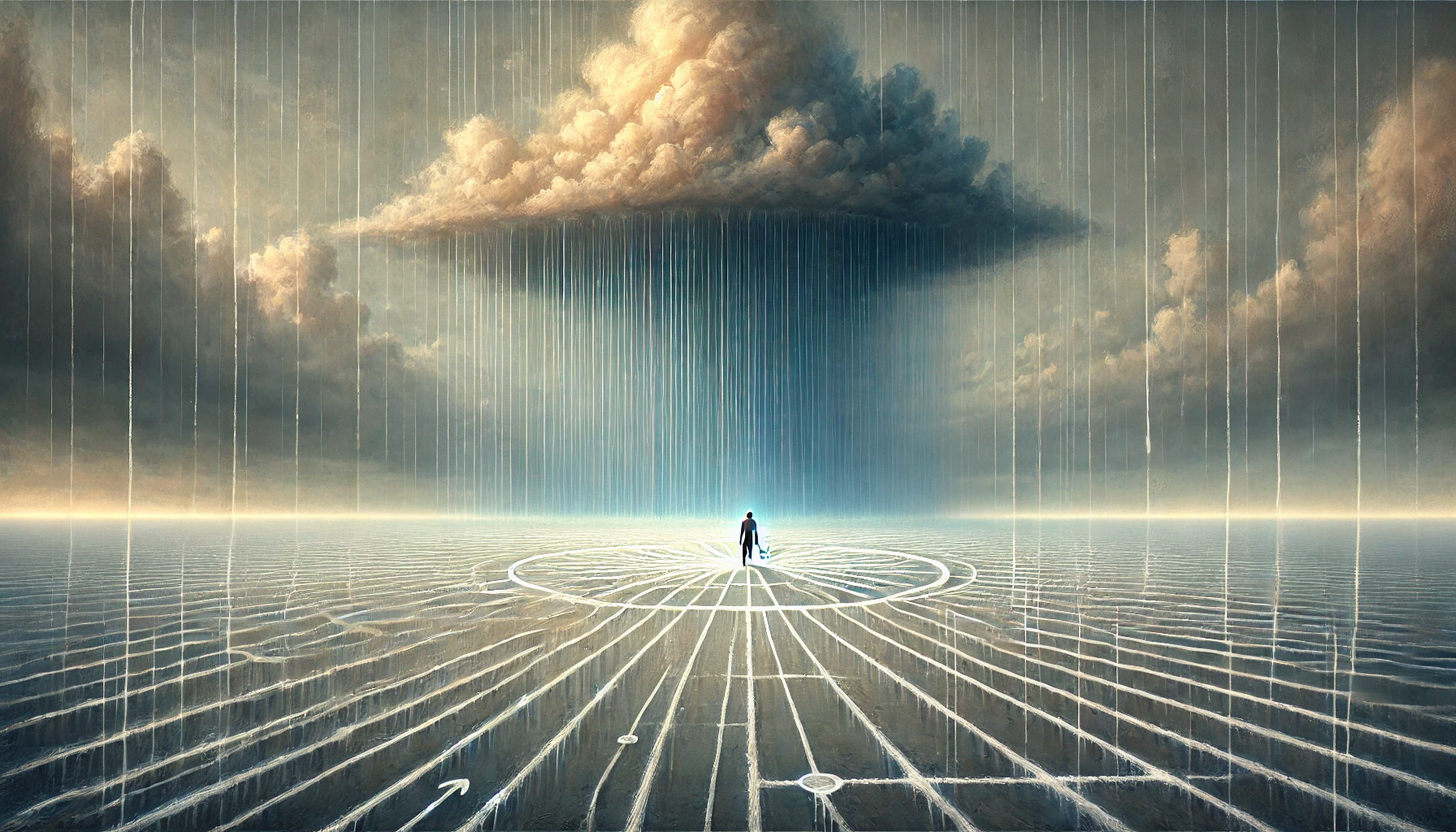


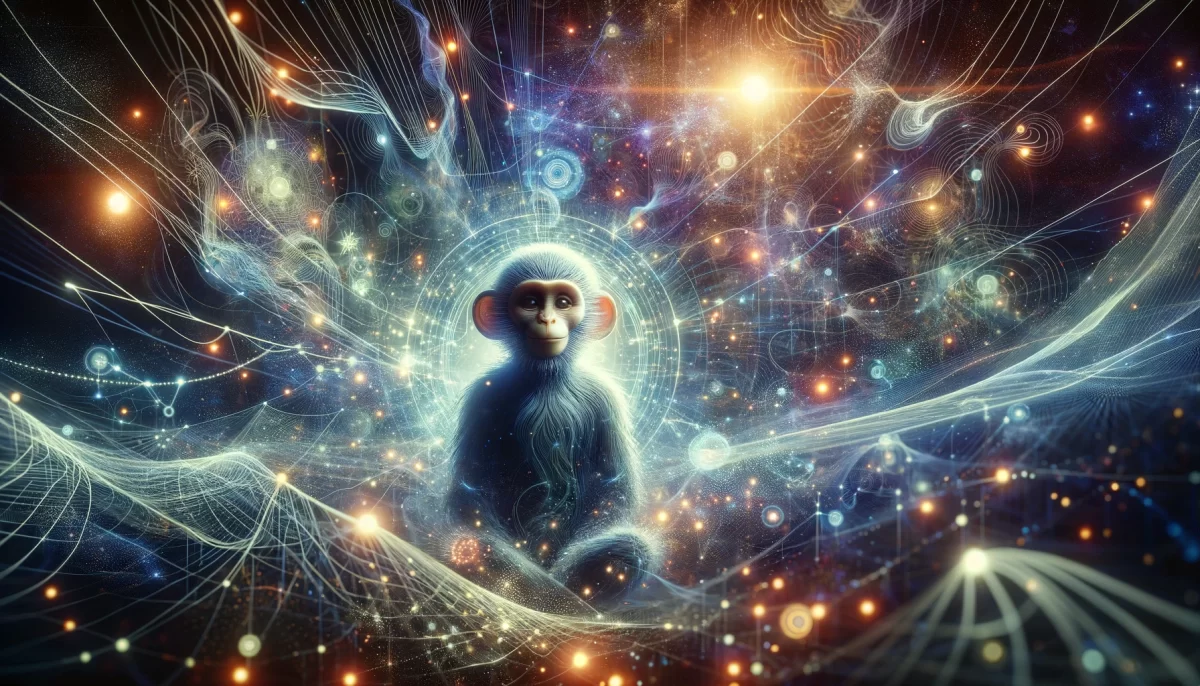

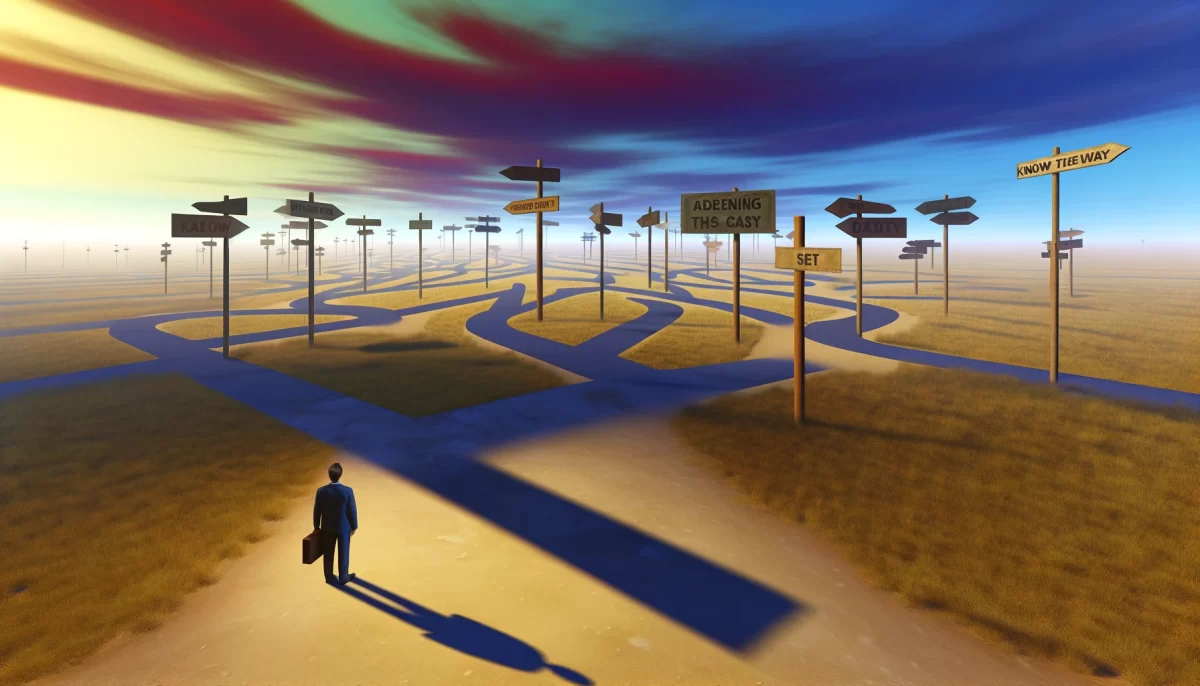



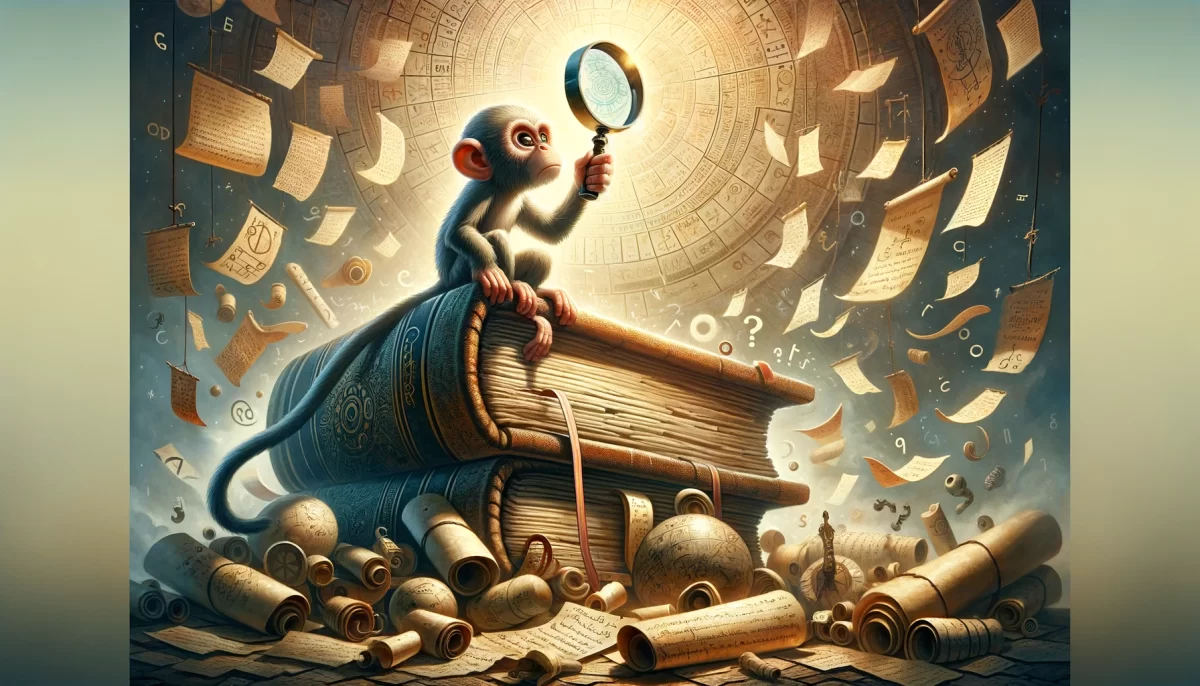


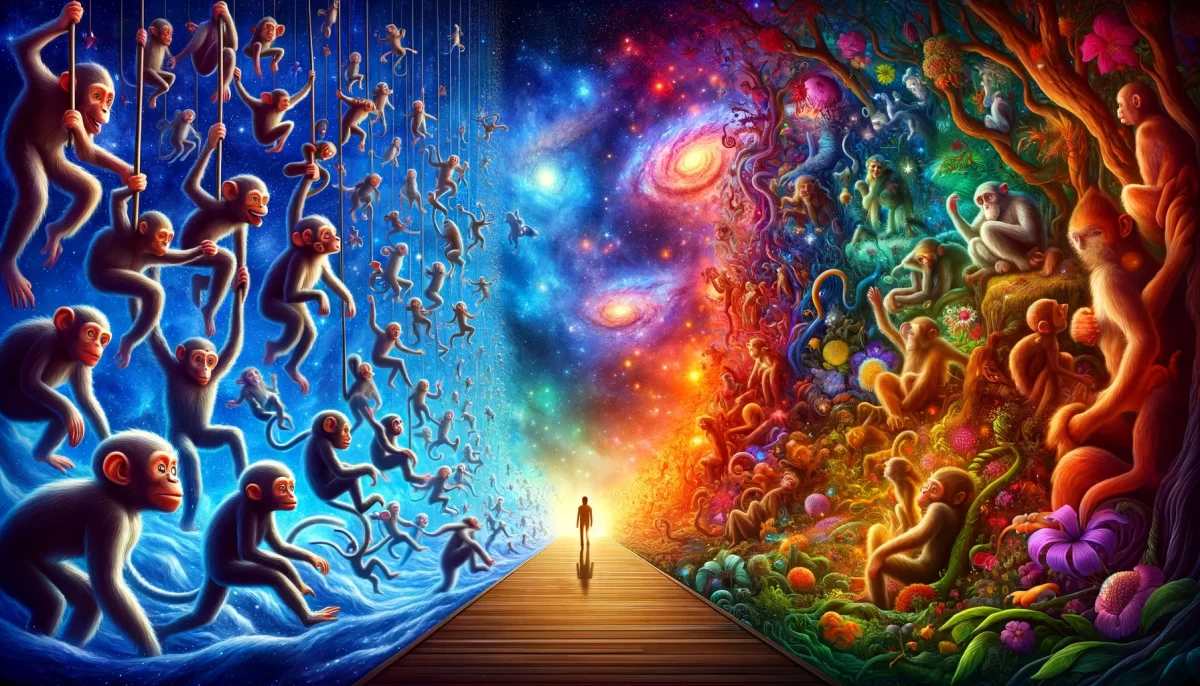








Leave a Reply